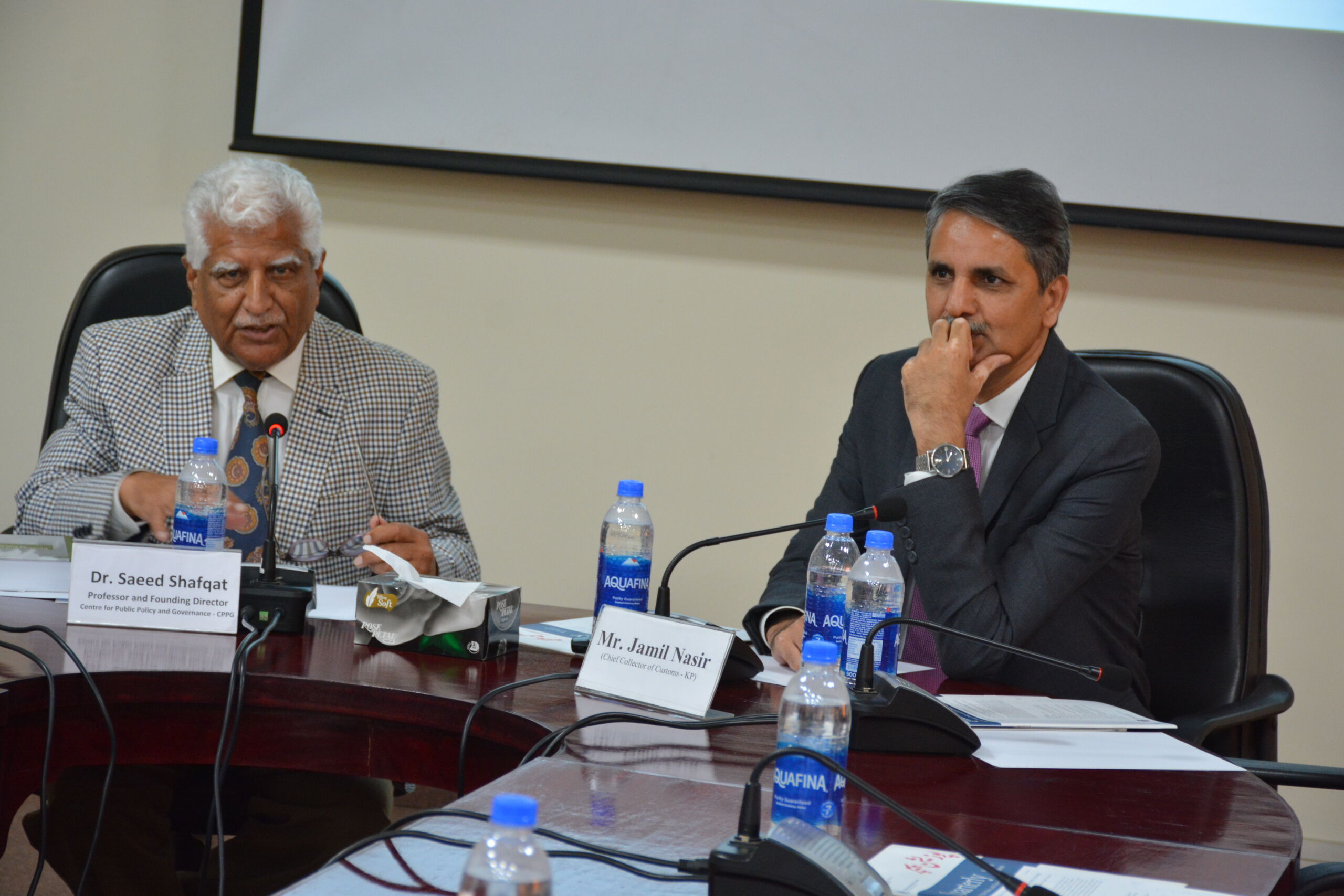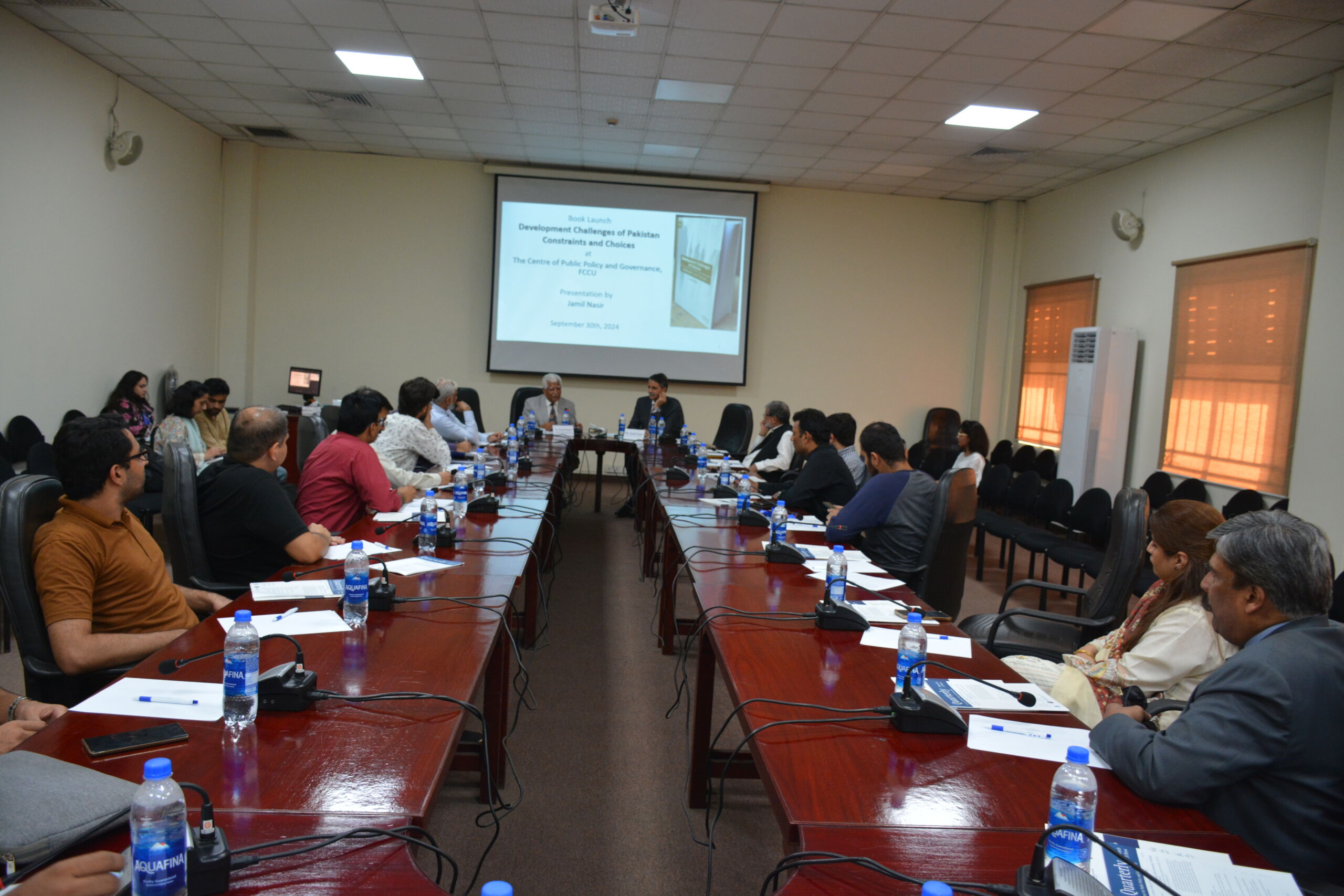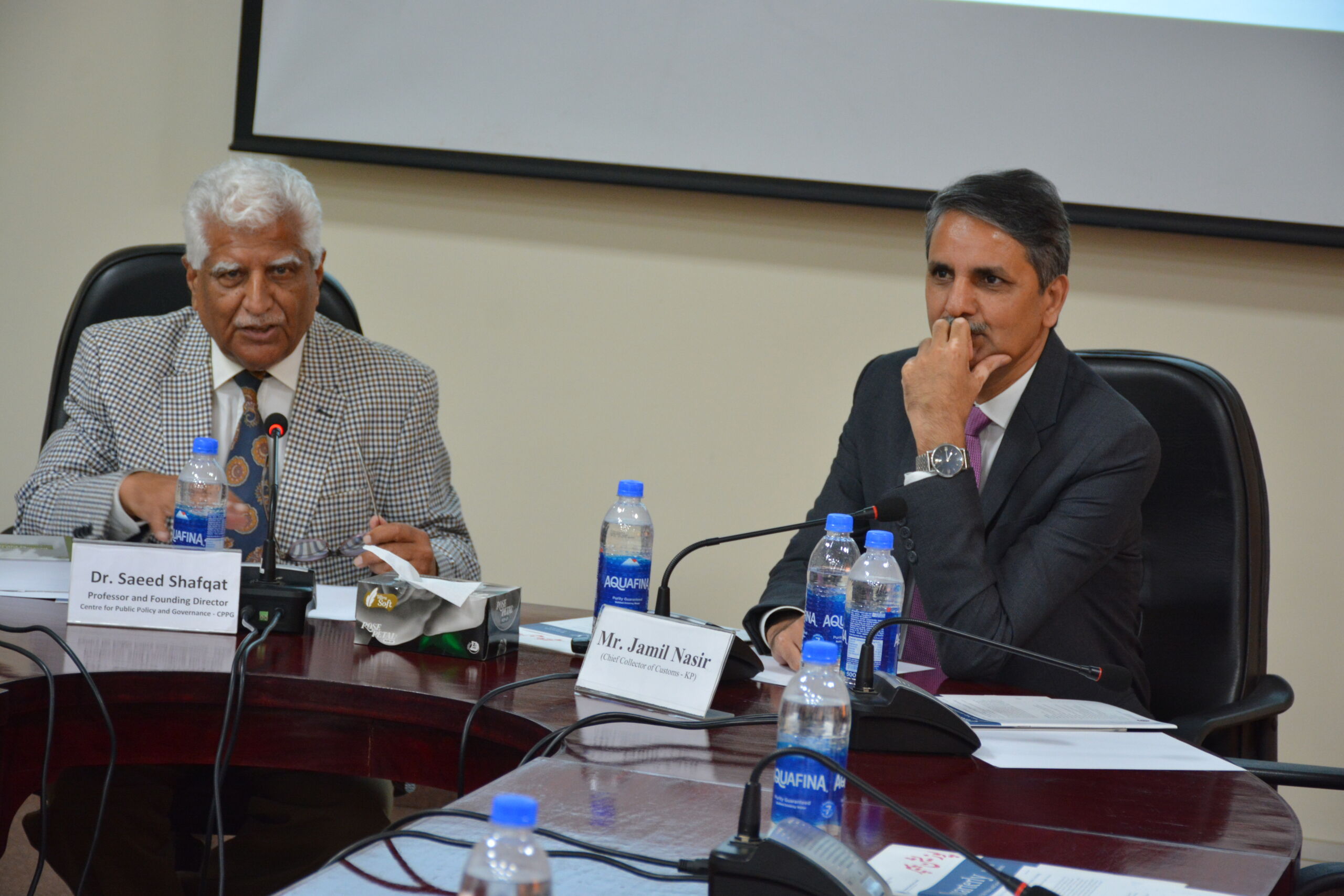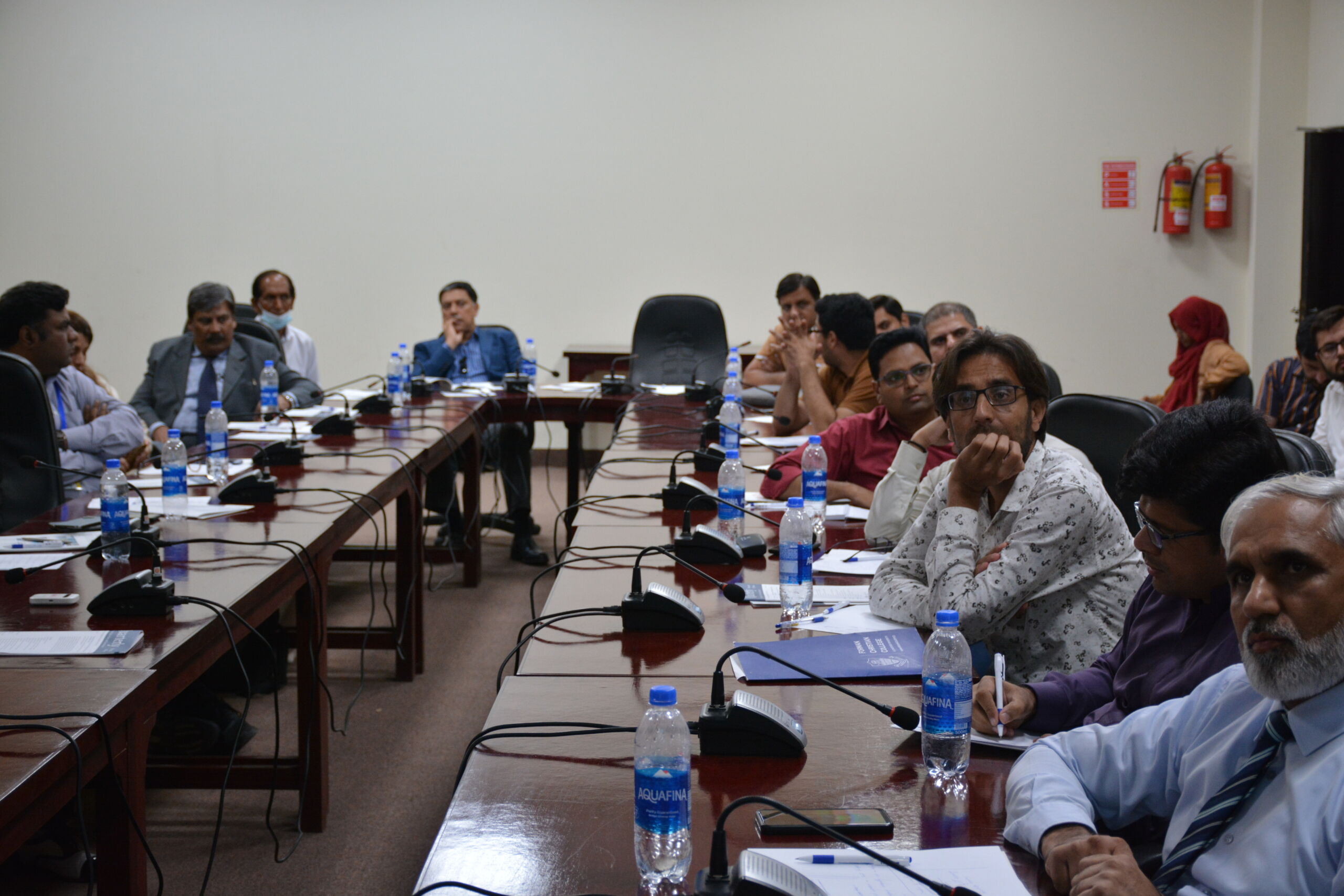
Development Challenges of Pakistan: Constraints and Choices
Book Launch
Past Event
Sep 30, 2024 - 4:00 pm |
Oct 30, 2024 - 6:00 pm
Jamil Nasir
Book Launch
Upcoming Event
The Centre for Public Policy and Governance organized a book launch for Mr. Jamil Nasir’s book Developmental Challenges of Pakistan: Constraints and Choices. Mr. Jamil Nasir is serving as the Chief Collector of Customs in Khyber Pakhtunkhwa. He is an economist by training with an additional academic background in the areas of Economic Governance, Economic Policy Management, Public Policy, Business Management, and WTO laws. He is also a graduate of Columbia University, USA, with a Masters in Economic Policy Management.
Dr. Shafqat then invited Mr. Jamil Nasir for his presentation. Mr. Nasir started by stating that there is a lot of debate around numbers but no one bothers to decipher what lies behind those numbers, which is what motivated him to write this book. He argued that there is a prevalent misconception that the economic growth of Pakistan has always been very low. During the 1960s and 70s, Pakistan was being hailed as one of the leading economies in Asia, it was only during the 90s that the growth saw a dip. So, what went wrong despite having reasonable growth in its early years? The reason is the lack of equity. Economic growth is not sustainable in the long term if people are alienated from the process. If we want to have a deeper understanding of the developmental issues in a state, other than economics we must also consider factors like the geography of the region, institutions of the state which ensure the rule of law, and culture of the state; He raised a critical question. Is it forward-looking or backward-looking in terms of embracing innovations?
The author then went on to present other arguments in his books. While commenting on reforms he argued that when proposing reforms, one can’t expect change to occur overnight, it requires decades of steady policy planning and commitment to reforms. For instance, During the 1960s, despite having the same indicators as South Korea and the Philippines, land reforms in Pakistan were not able to achieve the same effect as the other two countries because the reforms that were proposed were done half-heartedly. Mr. Jamil Nasir commented that it has always been difficult to talk about issues related to political economy. When it comes to governance and state capacity, multiple factors impede development in Pakistan. For instance, rampant corruption leads to a sense of scarcity and promotes a culture of clientelism, trust in institutions is largely deficient, rampant tax evasion is another factor that not only hinders growth but also puts an unnecessary burden on an already fragile economy, relationships with neighboring countries are precarious due to militancy, resulting in loss of trading opportunities.
Mr. Jamil then highlighted some of the policy choices that can help eliminate Pakistan’s developmental crisis. He proposed that the government needs to focus on Small and Medium-sized Enterprises (SMEs). This will result in far better economic outcomes than investing heavily in just a few big businesses. Another area that needs focus is Agriculture. He stated that in earlier times, farming was part of a service economy, landowners and peasants had a shared bond which had eroded over time. In the 1960s during the ‘Green Revolution’ in Pakistan, the importance of a rural non-farming economy was emphasized but the initiatives taken to boost it did not trickle down to the landless peasantry. Starting small farm initiatives can ensure that people are given a share in the pie and can improve the quality of production too. The areas for development that must be prioritized other than businesses and agriculture also include education, public health, and accountability, Mr Jamil Nasir asserted in his talk.
Commenting on Economic growth and Poverty the speaker postulated that poverty cannot be elevated through just microfinance and cash transferring schemes, He argued that empirical evidence shows that such schemes only help boost consumption but do not end poverty cycles. For sustainable growth economic reforms are essential. These reforms might be challenging but for a better and sustainable future, the government must distribute state-owned land, provide small-scale credits with lower interest rates, increase wealth and inheritance tax and it must ensure financial inclusion of all genders.
The floor was then open for a question-answer session. To, a question concerning the independence of the economic system from external influences, Mr. Jamil replied that Pakistan is part of a globalized economy, it needs to increase its share of the pie within that economy. For this Pakistan needs to create a conducive environment for investors and get the right person to do the right job. Another question regarding political instability as a challenge in developmental growth was also raised. Responding to it, the speaker pointed out how prophecies about Pakistan’s rampant development in the 60s failed, which was a direct result of the huge per capita disparities and the sociopolitical turmoil the country was plagued with.




